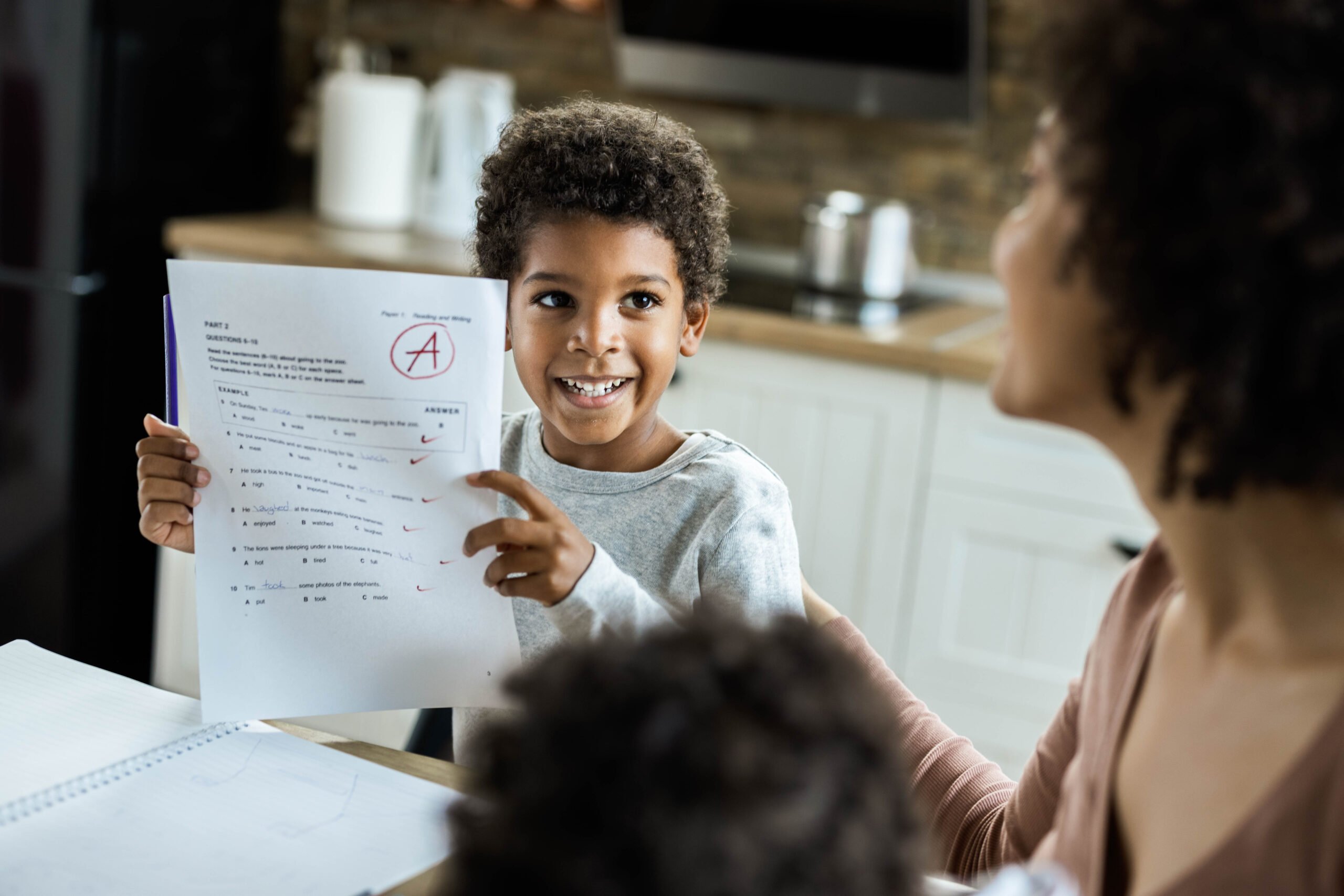
My oldest two girls jumped in the van after school, one of them eagerly sharing that it was the day. I asked her what day she was referring to, and she rolled her eyes, like a normal teen does. Then she replied, “Mom! It’s report card day!”
They asked me to check their grades when we got home, each wanting to know how they did. I couldn’t remember my password to get into the school system, because it had been so long since I checked their grades. Unlike a lot of parents, our family doesn’t put any emphasis on grades, honor roll lists, awards, or any other (often artificial) measures of accomplishment.
Now before you angry-tweet me, we absolutely celebrate our children’s victories when it matters to them
One of my kids worked for three quarters to finally make the honor roll list. We were happy for our child — because they were happy and had worked hard. I want to emphasize the “worked hard” part, because we’ve taught our children that the most important thing they can do is try their best.
Whatever our kids’ best is, that’s what matters. Their best isn’t limited to a letter assigned to their test or essay. In fact, their best should focus on their character. I care much more about the answers to these questions. Were you kind? Did you include others? Did you share your boundaries and stand by them? Did you stand up for the child who was being made fun of? Who did you empathize with today?
Unfortunately, even if parents don’t put a focus on grades, society does
GPAs, assessments, and test scores impact a child’s future, whether we like it or not. You don’t have to tell me. I’m a former college writing teacher. I graded 90 essays every four weeks. Grades definitely mattered.
However, what I noticed during my nine years of teaching is that the students who became most successful in real life weren’t the ones who earned straight A's. The students who nurtured relationships, asked for help, took time to exercise and rest, and knew how to do basic things like run a load of laundry — they were the ones I felt were the most successful.
It’s because they were well rounded, not just academically upright
Life skills are what will carry a child through adulthood — not the grade they earned on a math test in the fourth grade or the attendance award they received in middle school. Now, there’s nothing wrong with a child being academically on-target or gifted. However, there’s also nothing wrong with the child who isn’t.
When I think of my children as adults, I hope that they are respectful, well-mannered, confident, inclusive, and filled with purpose. I want them to see what they want in life and go for it, but not to the point of having a physical or mental breakdown. I want them to seek balance, relish in joy, and take time to smell the proverbial roses.
We don’t reward or punish our kids for their grades
Instead, if we see them struggling academically, we discuss what’s going on and come up with solutions. We make sure our kids know that their value as people doesn’t rest on how much red ink (or lack thereof) is on the papers they bring home from school. They are so much more than their academic performance.
After two years (and counting) of a global pandemic, children now, more than ever before, need parents who connect with them, teach them, and listen to them. Their fast-tracked, catching-up, academic success should be the least of parents’ worries. When a child’s needs are met, when they feel safe and loved, they will exude these — sharing them with others. Then, and only then, will a child be able to do their academic best, whatever that is.




